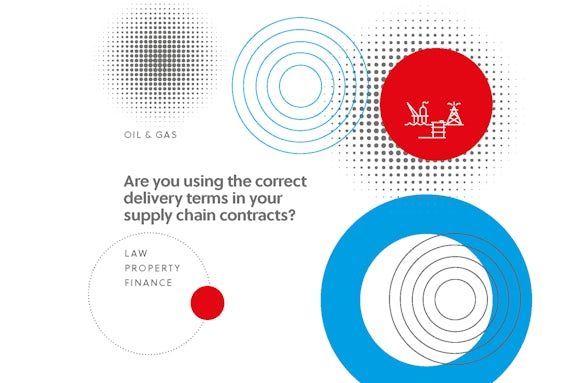Delivery terms aren’t THAT important are they?
If you are supplying products, you need to ensure that the delivery terms are getting proper care and attention.
Many suppliers have “standard” delivery terms that they stick to regardless of the contract. That may work if you only ever deliver from and to the same location, but perhaps not if you are supplying globally within many different jurisdictions.
You should look at the reality of what will happen in practice and reflect that in each contract. If the Buyer is going to physically collect at your warehouse and accept title and risk from that point onwards, then you are probably looking at EXW delivery terms. It is not good practice, however, for the contract to say EXW when in reality you’ve agreed to deliver the goods across the border as your customer doesn’t have the capability to handle the customs logistics in-house.
You should always have a keen eye on:
- time of delivery,
- place of delivery,
- at what point title and risk pass to the customer, and
- what the consequences of late delivery will be.
Is time really of the essence?
It is commonplace for supply contracts to state that time is “of the essence”. What that means in practice is that your customer will have the right to terminate the contract if delivery is late
(even by 10 minutes in one case).
My instinct is usually to reject these provisions. They are often contradicted by the inclusion of liquidated damages provisions.
A liquidated damages clause essentially allows for an extension to the delivery date/time, with a mechanism for compensating the late delivery. If an extension is permitted, then time isn’t really of the essence.
What are liquidated damages?
Liquidated damages provisions are often drafted into supply contracts in an attempt to provide a “genuine pre-estimate” of the loss suffered for late delivery. This is in response to “penalty” clauses not being permitted in Scots and English law contracts historically – there is some movement of that position lately, but that’s a blog for another time.
A liquidated damages provision can be helpful for both supplier and customer in that it brings some certainty to both sides. From a supplier’s perspective, it may be a concession of sorts because there may be no actual loss for delivery being delayed by a short period of time (but the Supplier would still be liable for liquidated damages). As a supplier, it is very important to ensure the levels of liquidated damages are reasonable and sensibly capped. I’ve seen anything from 0.5% per day with a maximum of 10% to 1% per month up to a maximum of 10% (of contract price). For example, a “per day” rate is potentially over the top in a huge project which has a lifespan of years.
Risk and title in the goods – know your INCOTERMS
- Ex Works
- Free Carrier
- Carriage Paid to
- Delivered at Place
- Free on Board
Examples of the different “INCOTERMS” commonly used. If using INCOTERMS rules in your contract, it’s important to reference them correctly.
Please see here
When choosing which of the INCOTERMS to apply, it’s important to consider who will need to be involved in export and import clearances, which will not always be best left to the customer. It is also important to understand at what point risk will pass to your customer and ensure that your pricing and insurance cover reflects the delivery arrangements.
Conclusion – delivery terms are VERY important
It is hugely important to not gloss over the delivery terms in your contract as they can hold significant risks and exposures to you as the supplier. Be sure to understand the different INCOTERMS rules and reflect what will happen in practice, as well as what is reflected in your price/insurance arrangements. And, finally, don’t blindly sign up to time being of the essence, which it often isn’t in reality.
If you would like further information on the topic discussed in this blog, please contact Calum Crighton by email: ccrighton@gilsongray.co.uk or by phone: 0131 285 7841 / 07825 884 961. You can also view Calum’s profile by clicking here.
The information and opinions contained in this blog are for information only. They are not intended to constitute advice and should not be relied upon or considered as a replacement for advice. Before acting on any of the information contained in this blog, please seek specific advice from Gilson Gray.








